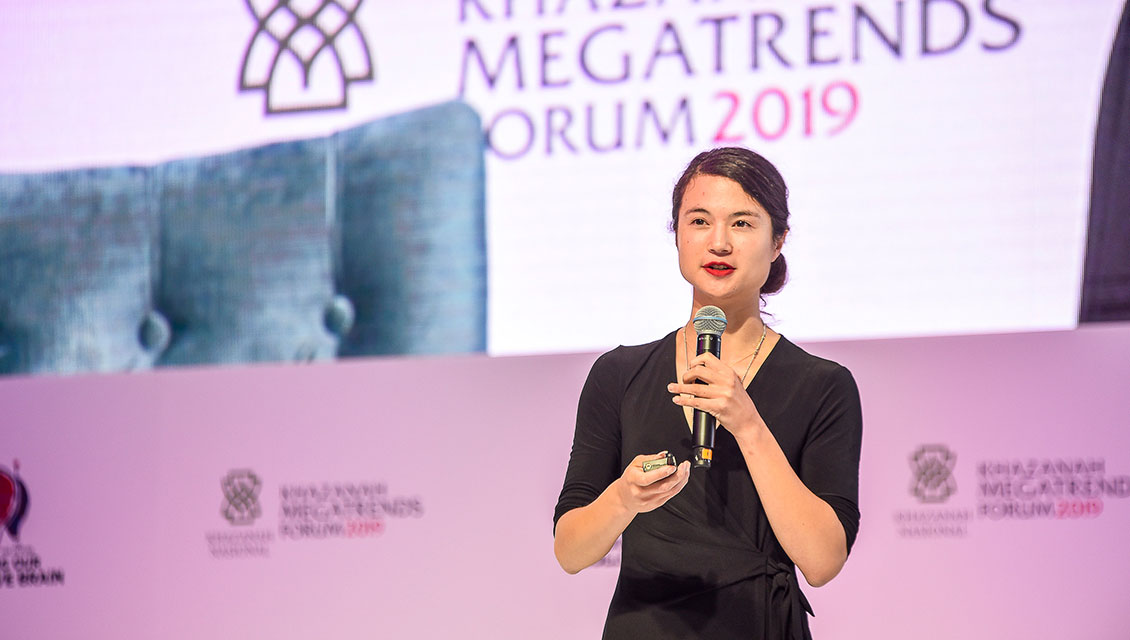Session Summary
Mr Sumant Mandal: The Future of Technology will be driven by our shift from the Internet to Artificial Intelligence (AI).
Growth in AI adoption will accelerate as services are now cheap enough for adoption by firms.
The rise of 5G technology and quantum computing will facilitate decentralisation of the ever more powerful computing power, benefiting firms and the people.
Enterprise software programs market will continue to grow rapidly.
Firms no longer need to build their own data centers but pay-as-you-go for digital cloud computing.
Individual and companies that embrace future technology can be more successful.
The future of computing will put more computing power into people’s hands, where work will longer be tied to a physical location and play will become more exciting.
Dr Santitarn Sathirathai: Life-long learning is important to face the future of work.
The way we think about education today must change.
As content and answers become easier to obtain through the Internet, the education system will need to train and encourage the younger generation to ask questions, spurring creativity and getting out of their comfort zones.
Innovation is not just for entrepreneurs; every employee can be an entrepreneur.
Thus, organisations should empower and provide space for employees to innovate and be “Intrapreneurs”. The private sector can contribute to the government’s effort to prepare the population for the future of work.
The private sector can contribute by supporting research, dissemination and providing policy options together with the government.
In this spirit, SEA Group has launched a public partnership program to upskill 10 million people in 10 years to increase digital inclusion and growth in Southeast-Asia.
Datin Paduka Dr Teo Soo-Hwang: We need to understand cancer in the Asian context.
As cancer is a genetic disease, it cannot have a one-size fit all detection and treatment systems.
Cancer manifests differently between race, gender and types of cancer, therefore requiring racial diversity in cancer research and clinical trials.
Understanding how cancer in the Asian population will be key to prevent and cure cancer amongst them.
Asians have been under-represented in cancer research when increasingly they will have higher risk of having cancer and will form one of the largest groups of cancer patients globally.
Corporations can play an important part in supporting the effort to research, cure and raise awareness on cancer treatments.
Putting charity and corporate social responsibility funding into medical research will go a long way in championing this effort.
Ms Laura Deming: How do we solve one of the biggest problems of human beings – Ageing?
Ageing is malleable.
Nature tells us that ageing is not inevitable, it can be regenerated and can be programmed. For instance, animals such as Hydras and naked mole-rat may be biologically immortal.
Ageing can also be engineered backwards.
Research found out that aging can be modulated. For example, C. elegans worms with mutated genes can live twice as long compared to normal worms.
The Longevity Fund is willing to invest in small companies and start-ups instead of Big Pharma companies as it wants to support companies with great passion and enthusiasm.
The fund also aims to create an ecosystem that allow knowledge transfer between companies that are working towards the same goal.
